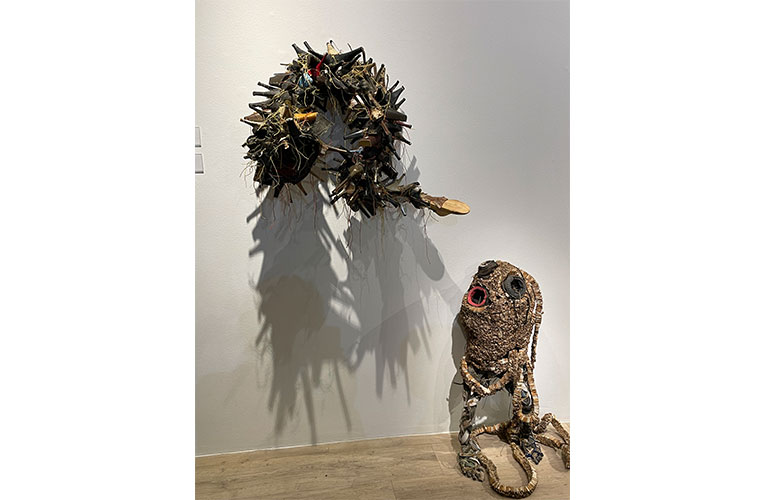Cold weather could not stop art as talent is awarded at Cassirer Welz award ceremony in Johannesburg
The award ceremony, which took place at Strauss &Co.’s Johannesburg Head office in Houghton, on Tuesday, Johannesburg, saw guests impressed by the work of the seven finalists.
By Edward Tsumele, CITYLIFE/ARTS Editor
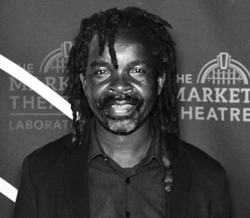
Johannesburg these days has become a leading city when it comes to hosting art events with impact, be it a theatre show, a music event, art auction or an awards ceremony. This is good, but sometimes it becomes a challenge to attend all events for various reasons, including the current cold weather and the fear of catching the current wave of flu that seems not to be in a hurry to leave us alone.
Tuesday this week was extremely cold, with temperatures plummeting to some of its lowest since the beginning of this year.
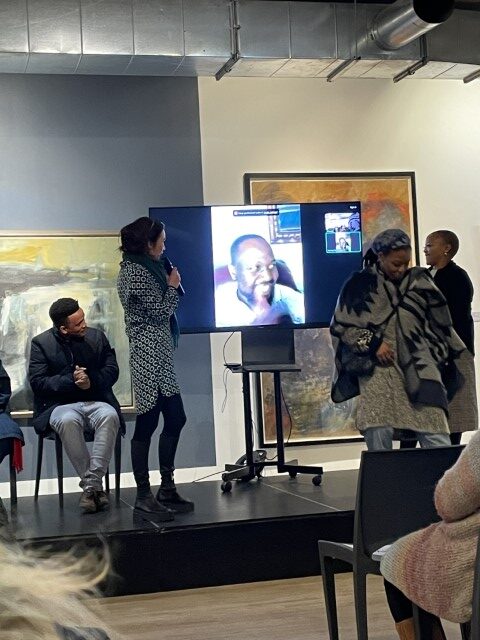
However cold weather or not, the fear catching the lingering flu bug or not, there was an art event held at Strauss &Co.’s head office in Houghton that I could not imagine missing. It is the Cassirer Welz Award for emerging artists. This is because in the past few years, I have closely followed this award, particularly the artists the adjudicators choose as winners. This award awards really talent, and most of those awarded go on to do very well. Some of them we have featured on this platform. This therefore distinguishes this award as a prestigious and impactful one. And so I made my way there, ignoring the cold evening weather.
The first sign that this year, and just like its preceding editions, the annual and popular Cassirer Welz Award has maintained, and even surpassed its previous entries with regards to quality, was when guests kept on glued to the art works of the finalists hung on the wall, even going back several times to have an intense gaze, clearly having a conversation with the works on the walls, and some on the floor, that is as far as the sculptural installations are concerned. And quite interestingly this extended gaze, the silent conversation that went on between the works and the guests involved all the seven finalists’ works.
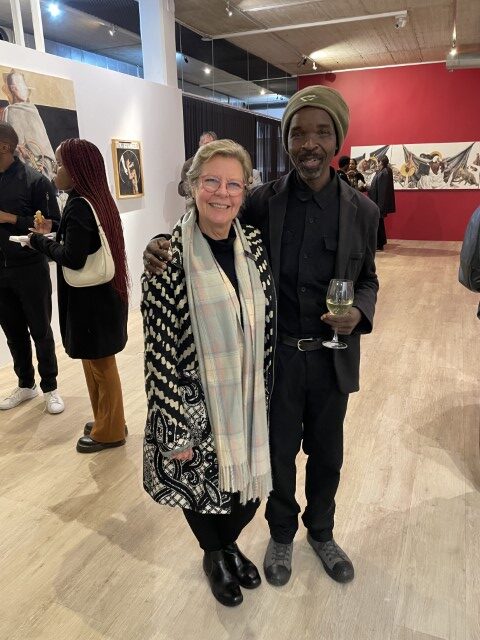
This year, three of the finalists are from outside South Africa –two from Zimbabwe and one from Mozambique. And this is because, according to previous winner and now a practising artist with a fully functional studio at the Bag Factory studios in Johannesburg, Specs Ndimande “Staruss and Bag Factory have since extended the scope of the award to include artists from our neighbouring countries, whereas when it started in 2011, it was only open to South African artists.” Specs who is employed as a cataloguer at Strauss &Co, moderated a conversation that turned out to be quite fruitful before the announcement of the winner. The conversation featured veteran artist and founding member of the Bag Factory Pat Moutla and three previous winners of the awards – DuduBloom More and Levy Pooe.
The three artists spoke at length about how since winning this prestigious award for emerging artists, their career trajectories have changed for the better. For example, DuduBloom More, after winning the award opened a studio in Johannesburg and was employed as a gallery assistant at Guns &Rain gallery in Parkhurst. Now represented by Berman Contemporary she has had sold out shows internationally, and is today a much sought after artist locally.
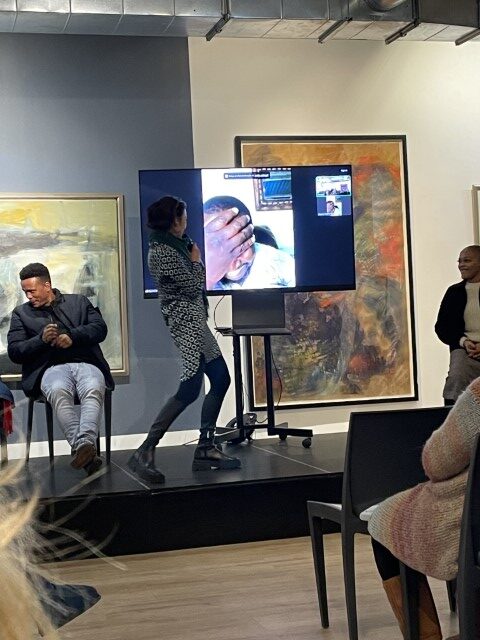
Levy has enjoyed a higher profile on the contemporary art scene. “For example I was on TV for the first time in my life,” he said amid laughter. However his biggest high profile work in recent months, a prestigious commission for that matter, is a giant wall mural at the Bag Factory in commemoration and in celebration of one of the country’s leading veteran artists and critics, the late David Koloane, who was one of the leading brains behind the founding of Bag Factory. When he passed on in 2019, he still had his studio at the place, that act itself inspiring many a a young artist, who worked from there, including some of the previous winners of this prestigious award.
However it was an opportunity to hear the finalists talk about their art practice, and of course themselves that many a guest had been waiting for, and therefore when Specs, closed the panel discussion to open the way for the artists to take centre stage, one could see relief and a sense of anticipation in their eyes and faces.
First to speak were the three artists that made it to the event, while the rest spoke through Zoom after. What a bunch of young artists who know their story and are quite articulate. This is indeed a new breed of young emerging art talent that could easily represent the continent in some of the most intimidating and challenging international art forums, such as the Venice Biennale, Bamako or Ducumenta. They are confident, know what they are doing.
And quite interestingly what runs through all the artists’ works is the theme of identity, as they through their different visual languages and interpretations, are not only able to deal adequately with issues around their personal identity issues, but carry the audience with them.
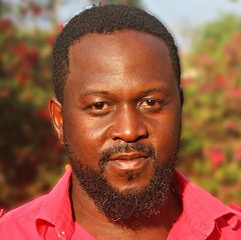
“Bag Factory Artists’ Studios, in collaboration with Strauss & Co. Education and Fine Art Auctioneers, proudly announces Tawanda Takura (Zimbabwe) as the winner of the 13th Cassirer Welz Award.
Established in 2011 by Nobel Laureate Nadine Gordimer in honor of her husband Reinhold Cassirer’s passion for the arts, this award has become a distinguished recognition for emerging local artists. Following the death of Stephan Welz, the award was renamed to Cassirer Welz Award to honor both men’s contributions to the South African art scene.
Through its enduring partnership with Strauss Education, the Cassirer Welz Award has been instrumental in launching the careers of its recipients, helping them gain recognition in the South African art market. As the award celebrates over a decade of excellence, Bag Factory Artists’ Studios and Strauss Education continue their commitment to fostering emerging talent.
Since its inception, the award’s reach has expanded onto the continent. The 2024 call for entries included artists from several countries within the Triangle Network, such as Angola, Botswana, Eswatini, Kenya, Lesotho, Malawi, Mozambique, Namibia, Nigeria, South Africa, Tanzania, Uganda and Zambia; and it is with great pride that the award this year is presented to a Zimbabwean artist,” the organisers said.
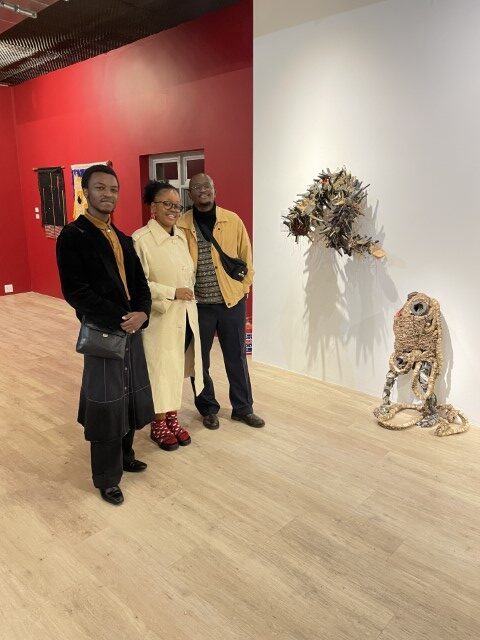
The selection jury, which included Bag Factory Director Maria Fidel Regueros and Programmes Manager Nala Xaba, as well as Strauss & Co. Executive Director Client Advisory Khetiwe McClain and Art Specialist Arisha Maharaj, agreed that Takura stands out as an exceptional artist. His self-taught practice in found object sculpture will significantly benefit from this opportunity for both creative and professional growth.
“Since its inception, this award has helped the winners launch their careers and start making a name for themselves. It recognises artistic excellence, encouraging creative practice, and providing the supportive space and presentation platforms required by emerging artists. This award is an important part of Strauss & Co.’s ongoing and substantial commitment to young talent in southern Africa and on the continent – and is a powerful example of the company’s investment in the art of the future,” said Susie Goodman, Executive Director, Strauss & Co.
Announcing the 2024 Cassirer Welz Award Recipient
Bag Factory Artists’ Studios, in collaboration with Strauss & Co. Education and Fine Art Auctioneers, proudly announces Tawanda Takura (Zimbabwe) as the winner of the 13th Cassirer Welz Award.
Established in 2011 by Nobel Laureate Nadine Gordimer in honor of her husband Reinhold Cassirer’s passion for the arts, this award has become a distinguished recognition for emerging local artists. Following the death of Stephan Welz, the award was renamed to Cassirer Welz Award to honor both men’s contributions to the South African art scene.
Through its enduring partnership with Strauss Education, the Cassirer Welz Award has been instrumental in launching the careers of its recipients, helping them gain recognition in the South African art market. As the award celebrates over a decade of excellence, Bag Factory Artists’ Studios and Strauss Education continue their commitment to fostering emerging talent.
Since its inception, the award’s reach has expandedonto the continent. The 2024 call for entries included artists from several countries within the Triangle Network, such as Angola, Botswana, Eswatini, Kenya, Lesotho, Malawi, Mozambique, Namibia, Nigeria, South Africa, Tanzania, Uganda and Zambia; and it is with great pride that the award this year is presented to a Zimbabwean artist.
The selection jury, which included Bag Factory Director Maria Fidel Regueros and Programmes Manager Nala Xaba, as well as Strauss & Co. Executive Director Client Advisory Khetiwe McClain and Art Specialist Arisha Maharaj, agreed that Takura stands out as an exceptional artist. Hisself-taught practice in found object sculpture will significantly benefit from this opportunity for both creative and professional growth.
“Since its inception, this award has helped the winners launch their careers and start making a name for themselves. It recognises artistic excellence, encouraging creative practice, and providing the supportive space and presentation platforms required by emerging artists. This award is an important part of Strauss & Co.’s ongoing and substantial commitment to young talent in southern Africa and on the continent – and is a powerful example of the company’s investment in the art of the future,” said Susie Goodman, Executive Director, Strauss & Co.
With the generous support of Strauss & Co. and funding from Business and Arts South Africa (BASA), Takura will receive a three-month residency at the Bag Factory Artists’ Studios from 08 July to 27 September 2024, where he will work alongside permanent and visiting artists at all stages in their careers. The residency includes contributions to travel, accommodation, per diem, materials, and production costs. The residency will culminate in a solo exhibition of new works at the Bag Factory, opening to the public at the end of September.
This year’s award finalists
Tawanda Takura has exhibited with Village Unhu at Cape Town Art Fair (2017, 2018) and Joburg Art Fair (2018), and undertook a residency in Joburg with the South African Foundation for Contemporary Art (SAFFCA) in 2019. His work was included in a group show at the Guns & Rain Gallery in March 2019, the Cape Town Art Fair (2020), and in a two-man show with Thina Dube (2020). He has since participated in the group exhibitions Unnatural Objects and Meeting Places, a collaborative exhibition with Bag Factory (2021). In 2021 he participated in a residency with Guns & Rain and in a residency at the Nirox Sculpture Park, one after the other. He also had work showing during the Nirox Winter Exhibition, 2022.
Trained as a shoemaker, Takura takes apart and expertly re-assembles old shoes which carry the traces and biographies of their owners. Sometimes combined with other found objects and texts, these new figurations carry the subtle but persistent smell of rubber and leather. Hollow, hybrid, tortured and distorted, sometimes carnivalesque, Takura’s work comments on socio-political injustice, and often takes clear aim at what he sees as the extractive and hypocritical practices of charismatic churches. The artist describes how, “at times, in earlier years, I was considered a madman, going around collecting old shoes… people would see a heap of shoes in my house”.
Fred Zucule is a photographer, poet and cultural worker from Maputo, Mozambique, currently based in Nairobi, Kenya. Their work explores themes of migration, queerness and care, with the body as tool, metaphor and subject. Raised across multiple geographies from Maputo, to Nairobi, Johannesburg, to Los Angeles and New York; their photography blends these experiences through a mystical, surreal and queer lens. Kuln’Zu is also a film programmer having worked with New York African Film Festival, Atlanta African Film Festival and more. They graduated from Pomona College in 2021 with a BA in Africana Studies, with concentrations in Media and Molecular Biology.
Chumani “ivukuvuku” Mantanga is from eMgwenyane village at Tsomo in the Eastern Cape. She is a multi-dimensional artist who works across disciplines of textiles, painting, glass, ceramics, writing photography and performance. In her work, she explores themes of memory, healing, history and ancestry. ivukuvuku completed her Bachelor’s Degree in Fine and Applied Arts at the Tshwane University of Technology (2019), majoring in glass and painting. The name ivukuvuku is based on the realisation of how a piece of cloth, sometimes unpleasant, represents the rebirth of a transformed self, and celebrating a healed versions of selves.
In her artworks, materiality plays a vital role as she is able to connect with her mediums – those found in places like rivers, swamps and gravel paths in her village – in a way that revives the character of what was once discarded, then later brought into life – a rebirth of ivukuvuku. By mostly using a sackcloth to unite all the details entailed in her artworks, ivukuvuku is a healer and a healing spirit to (her)sel(ves). She describes the sackcloth as a skin; the celebration of (her)sel(ves) that suspends the societal beliefs of how ivukuvuku should identify. The sackcloth is also a symbolic healing of memory that represents the active processes of reconnecting and recreating relationships within the sacred space where the presence of her nature and her ancestors reside. As a result, the sackcloth undergoes through the elements of water, fire, wind and sun before it is then incorporated with beadwork, fire.
Keabetswe Seema is a visual artist from Johannesburg. She has a BA in Fine Arts from the University of Pretoria and her practice revolves around the politics of the body and identity, exploring themes of afro- futurism, non-monolithic selfhood, family archives, spirituality, and the hypervisible body.
Her works welcome the audience into an alternative universe where playful experimentation meets thought-provoking social commentary; it invites viewers to journey through mystery, absurdity and brilliance that seamlessly blends African futures and the profound.
Masindi Ikhona Nafisa Mbolekwais a young artist living and practicing in Johannesburg, South Africa. Mbolekwa’s primary practice is a conversation with painting, history, culture, space, community and God. Born into a proud and rich indigenous culture in a space of little tolerance, he finds himself caught between the necessity of modernism, and the romance of tradition; the institutional pull of the west, and the soul-bound call of home.
In interrogating identity, colonial mechanisms, religion, metaphysics, and the popularized, mythicized histories of “man” (as centred on the hegemonic West), he fashions a mythos of his own: an explorative pseudo-narrative to ground his experienced state of ‘groundlessness’, a reflection of liminality, a questioning of binaries both real and constructed, a debate with God, an ethereal safe space, a descent into the shadows of the divine.
Nyashadzashe Marovatsangais a young painter who lives and works in Harare, Zimbabwe. He has been an artist in residency at Village Unhu, Harare, since 2017. Founded by Georgina Maxim, Gareth Nyandoro, and Misheck Masamvu, Village Unhu is an art space that nurtures artistic local talent.
Under the mentorship of Misheck Masamvu, Marovatsanga has developed a powerful painterly language, using gestural brushstrokes and bold colouration.He speaks of his work: “Sometimes, I go blank, then the portraits revive my everyday struggle. Sometimes I dream, then I reveal the dreams in my portraits. Sometimes I laugh, and the teeth show all the cracks. Sometimes, the sun shines too hot.
Marovatsanga’s works were shown for the first time in South Africa as part of Different Angles, an exhibition that was held at THK Gallery Cape Town. He has exhibited with THK Gallery at 1-54 London, as well as various local art fairs. He is represented in collections in South Africa, Austria, Germany, the United Kingdom, and Zimbabwe, including in the Chris Moser collection (Vienna/Austria).
Treasure Mlima is a self-taught South African artist born in 1999 in Durban in the province of Kwa-Zulu Natal. Mlima’s works are composed of 2D prints, showcasing an array of imagery dealing with space and identity from an African perspective. Technically Mlima’s artistic process includes the use of found images that are digitally manipulated into collages, then carved into wood and eventually painted with oil-based and acrylic inks. Mlima sees himself as a sample of a type of existence in the world that is African. As an artist Mlima commits.
This indeed is a prestigious award, even getting nominated as a finalist, is indeed as good as winning. The prestigious winners indeed stand tall on the contemporary art market, includingNgobeni, Bulumko Mbete, Nompumelelo Ngoma, Tshepo Mosopa, Asanda Kupa, Thato Nhlapho, Richard “Specs” Ndimande, Keneilwe Mokoena, DuduBloom More and Levy Pooe.
And so as I made my way, catching a hailing taxi home, I did not regret braving the chilly Tuesday evening cold. It must be the refreshing art works on the wall by the seven finalists that did it.










